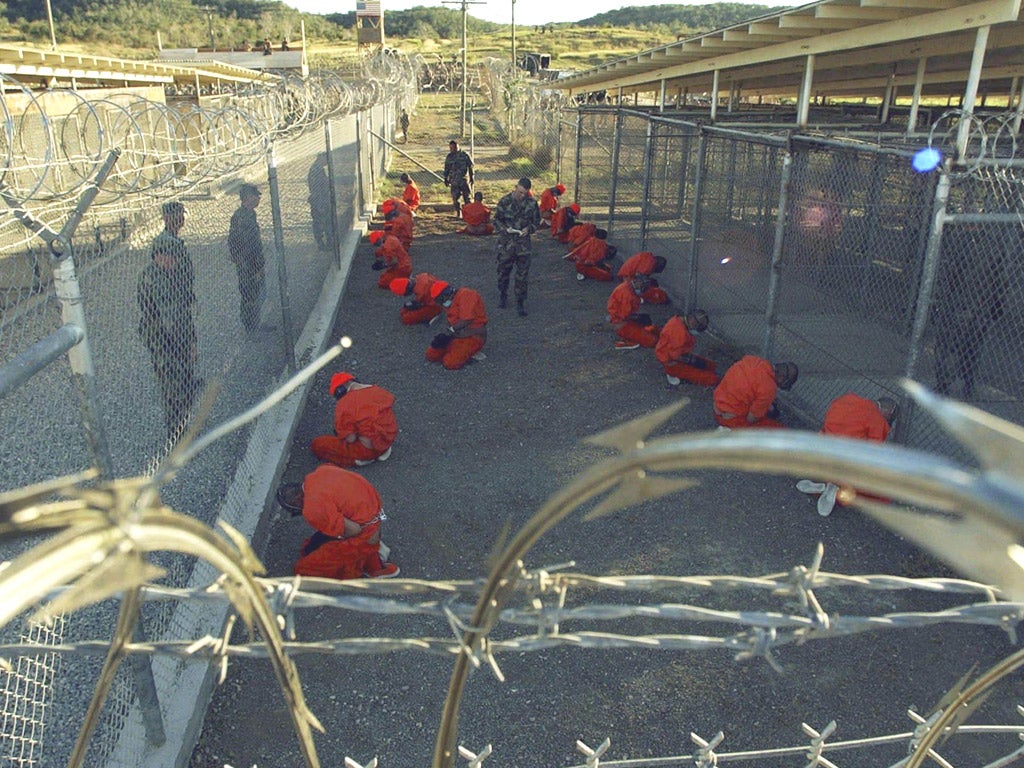
Your support helps us to tell the story
From reproductive rights to climate change to Big Tech, The Independent is on the ground when the story is developing. Whether it's investigating the financials of Elon Musk's pro-Trump PAC or producing our latest documentary, 'The A Word', which shines a light on the American women fighting for reproductive rights, we know how important it is to parse out the facts from the messaging.
At such a critical moment in US history, we need reporters on the ground. Your donation allows us to keep sending journalists to speak to both sides of the story.
The Independent is trusted by Americans across the entire political spectrum. And unlike many other quality news outlets, we choose not to lock Americans out of our reporting and analysis with paywalls. We believe quality journalism should be available to everyone, paid for by those who can afford it.
Your support makes all the difference.At a time when the US administration has only warm words for those brave enough to demand respect for their civil rights in the Middle East, it is sobering to be reminded of the US's own flagrant, continued abuse of human rights by detaining people without trial in Guantanamo – years after Barack Obama pledged to close the prison down.
This week marks the tenth anniversary of the rendition from Bagram air base in Afghanistan to the camp of the last remaining British inmate, Shaker Aamer, some of whose letters home we have published today. "Physically I am fifty-fifty," he writes to his family in one of them. "I've got arthritis, kidney problems, hearing problems, eye problems, my hair is falling out, my heart is aching – stomach problems – but at the end of the day I'm great."
Should we take an interest in these personal details? To an extent we should, not because they are an argument one way or the other concerning his guilt or innocence, but because they are a necessary reminder that we are dealing with real people here, not avatars representing some abstract phenomenon.
As with many other inmates of the camp, the nature and extent of Aamer's alleged crimes, if he is guilty of any, is impossible to determine because no charges have been put before a court. To recap, after growing up in Saudi Arabia and coming to Britain in 1996, he worked in Afghanistan for an Islamic charity, where US forces captured him following the fall of the Taliban. A decade on he remains stuck in Guantanamo, probably having done himself no favours there by acting as a determined advocate for the rights of his fellow prisoners. He certainly seems to have spent an inordinate amount of time in solitary confinement, the latest spell having begun last July.
If only this was a situation on which we could look with distant regret, comforted by the knowledge that the matter is no direct question of ours. But this is not so. As a legal permanent resident of the UK, with a family in this country, the Government has a responsibility to ensure that Aamer is returned to Britain and made to answer here for any questions about his doings in Afghanistan. If the Government is indeed doing anything to ensure this happens, it is moving at a snail's pace. Although Britain indicated a willingness to receive him back years ago, negotiations on the subject appear to have stalled since 2007. It is hard to imagine that the British authorities would be pursuing this matter with such singular lack of urgency if Shaker Aamer did not fall into that least popular category of British resident or national: the Arab-born suspected Islamist. At a time of near-constant alerts about bomb plots by Islamic zealots, there are no votes to be had in advocating anything on behalf of people such as Mr Aamer. But statesmen and women sometimes have to do things because they are right, not because they are necessarily popular. It is time that the Foreign Secretary, William Hague, demanded some answers from Washington.
This case should also prompt reflections on the danger of perpetrating similar abuses here. In recent years we have witnessed extensions to the provisions that allow for the detention of suspects without trial. In the case of Abu Qatada, who has not been charged with any terrorism crimes in this country, an immigration judge has now ordered the cleric's release on bail – after 10 years. We should remain aware of what a slippery slope indefinite detention of suspects is. Persuasive arguments can always be made in favour of such short-cuts. The problem is that what begins as an emergency provision soon becomes routine. As with the Aamer case, we then end up with a form of secret justice, or rather, with justice denied.
Join our commenting forum
Join thought-provoking conversations, follow other Independent readers and see their replies
Comments